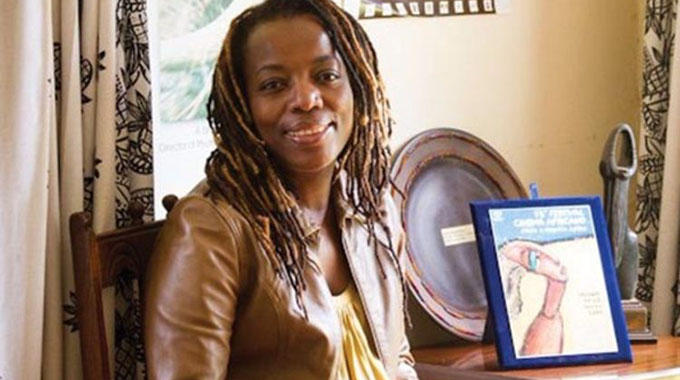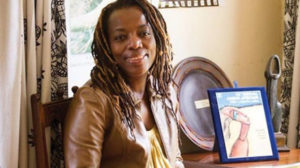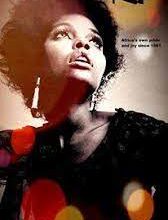Tsitsi Dangarembwa – A little Shy Girl Who Matured Into a Fighter of Injustices Against Women
Tsitsi Dangarembwa - Arts - Author & Novelist


By Tapfuma Machakaire 12/12/2022
The name Tsitsi Dangarembga reminds me of the shy little girl that I first met in 1967 at Old Umtali Mission in Manicaland who, two decades later was to transform herself into a prolific author, playwright and filmmaker.
Unlike her elder brother, Gwinyai, and younger sister Rudo, Tsitsi would hardly interact with other kids at the United Methodist-run mission school. She would prefer to remain indoors during her spare time. As was the norm those days, during school holidays, Tsitsi’s parents would sometimes take the family to their rural home in Zongoro communal area about 30 kilometres from the school.
As a young girl, Tsitsi must have been very observant during those outings and would be concerned about the injustices she observed in the community during the colonial era. These included the apparent rampant unjust treatment of women in a patriarchal society.
Tsitsi broke her silence in 1988 through her first novel Nervous Conditions where she focuses on themes of race, class and gender through the eyes of Tambudzai Sigauke, the young female protagonist. Nervous Conditions, the first novel to be published in English by a Black woman from Zimbabwe is regarded by many literary scholars as one of the most important African novels of the 20th Century. The novel, which was published by the Women’s Press in the United Kingdom and later in the United States of America, was named by the BBC in 2018 as one of the 66 top fictional books that have shaped the world.
The book is summed up as “drawing much focus on the lives of women living the impacts of colonialism in a traditional African society in Zimbabwe. These women struggle to assert themselves in a patriarchal society while at the same time it speaks about the history of a country that has been under colonialization. The female characters in the stories struggle in their lives to find ways to deal with their own situation.”
Famous Zimbabwean-born British female novelist, Doris Lessing, speaking just after its publication said: “Many good novels written by men have come out of Africa, but few by Black women. This is the novel we have been waiting for. It will become a classic.”
In 2020 Pen Country Mag which records literary culture in Africa unveiled the story of how Tsitsi had been duped by Women’s Press. “Someone left The Women’s Press and wrote to me and said: ‘Tsitsi, they’ve been sending you royalties but they haven’t been sending you all your money at all.’ It turned out that tens of thousands of pounds had not been paid to me, tens of thousands of British pounds. They had also violated our terms of contract. They were supposed to get my permission to do other language editions and they hadn’t even informed me,” said Tsitsi.
A UK-based lawyer represented her pro bono. “For some time, they paid some sum, then they wrote and said, ‘Sorry, we can’t continue to pay,’ and that was it,” she says. “The royalties augmented my student grant in Germany. But the size was definitely not enough to tell me my book was a runaway success. There was nothing to tell me my book was a success.”
Tsitsi has won numerous prestigious international awards that include the 2021 PEN International Award for Freedom of Expression. The award is presented annually since 2005 to honour writers who continue working despite being persecuted for their writing.
In the same year she became the first black woman to be honoured with the Peace Prize by the German book publishers and booksellers association since the inauguration of the award in 1950. In July 2021 she clinched an honorary Fellowship of Sidney Sussex College, Cambridge in the United Kingdom.
Tsitsi Dangarembga was born on 4 February 1959 at Nyadiri Mission, a centre established by United Methodist Church missionaries in 1925. Both her parents Amon and Susan Dangarembga were among the early African acamedics in Southern Rhodesia with the mother being the first black woman in the country to obtain a bachelor’s degree.
In 1961 the parents moved to England to pursue further studies where Tsitsi and her brother Gwinyai learnt to speak English at an early age. “We began to speak English as a matter of course and forgot most of the Shona we had learnt,” recalls Tsitsi
The family returned to Rhodesia in 1965 where her father had been appointed principal of Hartzel High School at Old Umtali Mission and the mother became a teacher at the same school.
Tsitsi was enrolled for her primary education at Central Primary School at the mission centre and was later transferred to Marymount Mission. She did her advanced level studies at Arundel School in Salisbury now Harare. In 1977 she went to the University of Cambridge to study medicine at Sidney Sussex College.
At Sussex Tsitsi experienced a myriad of challenges which saw her returning home after three years in 1980. She worked briefly as a teacher, before taking up studies in medicine and psychology at the University of Zimbabwe. She also worked for two years as a copywriter at a marketing agency.
She joined the university drama club, and wrote and directed several of the plays the group performed. She also became involved with the theatre group Zambuko, during which she participated in the production of two plays, Katshaa! And Mavambo. At that time Tsitsi observed the absence of roles for black women in plays that were being produced and sought to address the anomaly.
“There were simply no plays with roles for black women, or at least we didn’t have access to them at the time. The writers in Zimbabwe were basically men. And so I really didn’t see that the situation would be remedied unless some women sat down and wrote something, so that’s what I did!” She wrote three plays during this period: Lost of the Soil, She No Longer Weeps, and The Third One.
Tsitsi also began reading works by African-American women writers and contemporary African literature, a shift from the English classics she had grown up reading.
In 1989, Dangarembga went to Germany to study film direction at the German Film and Television Academy Berlin. While in Berlin, she produced a number of films including a documentary that was aired on German television.
In 1992 Tsitsi founded Nyerai Films, a production company based in Harare. She wrote the story for the film Neria, made in 1991, which became the highest-paying film in Zimbabwean history.The film concerns the struggles of a woman in Zimbabwe who is widowed after her husband is killed in an accident.
Her husband’s older brother takes advantage of the death of his younger brother, and uses the inheritance for self-benefit at the expense of Neria and her two children. Its soundtrack, Neria was sung by the late Oliver Mtukudzi one of the country’s most popular musicians who is also featured in the movie.
Her 1996 film, Everyone’s Child, the first feature film directed by a black Zimbabwean woman, was featured internationally, including at the Dublin International Film Festival. The film, shot on location in Harare and Domboshava, follows the tragic stories of four siblings whose parents had died from AIDS.
Tsitsi remains a fighter who has been involved in politics in her quest for justice for the ordinary Zimbabwean.



